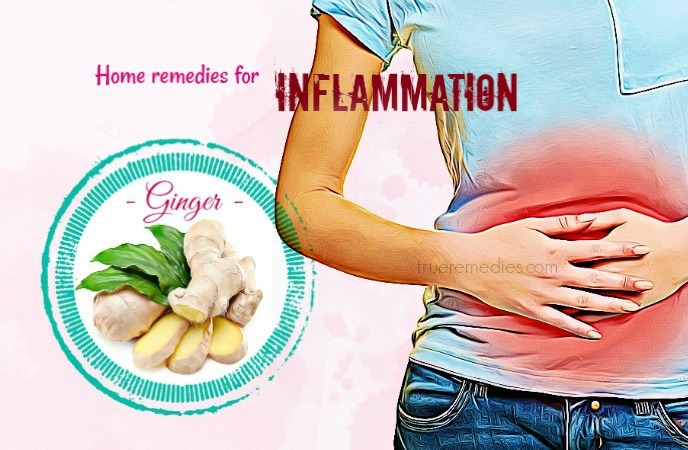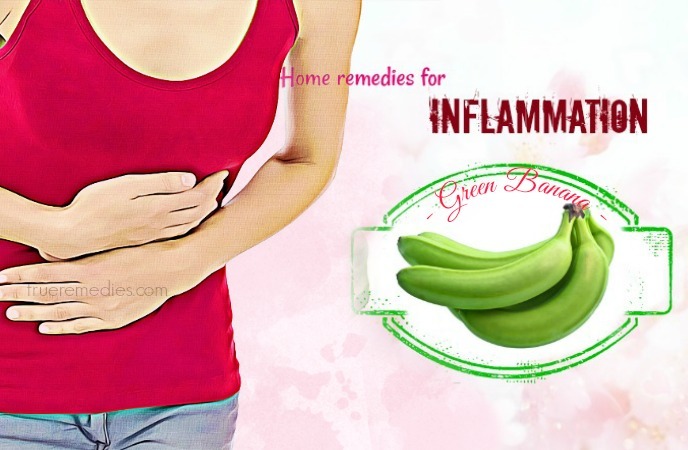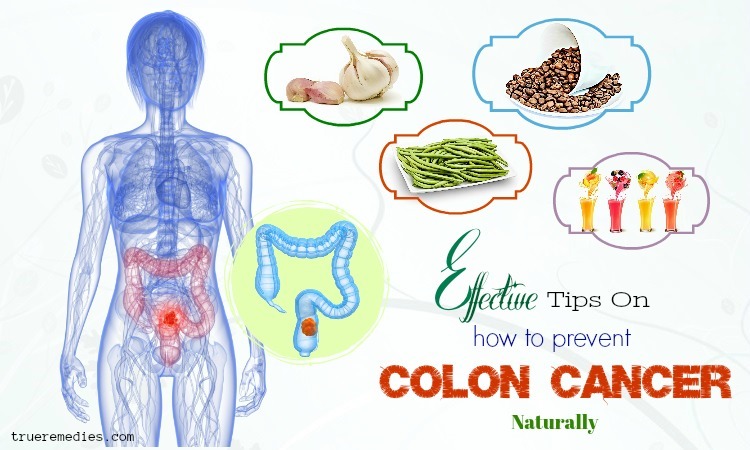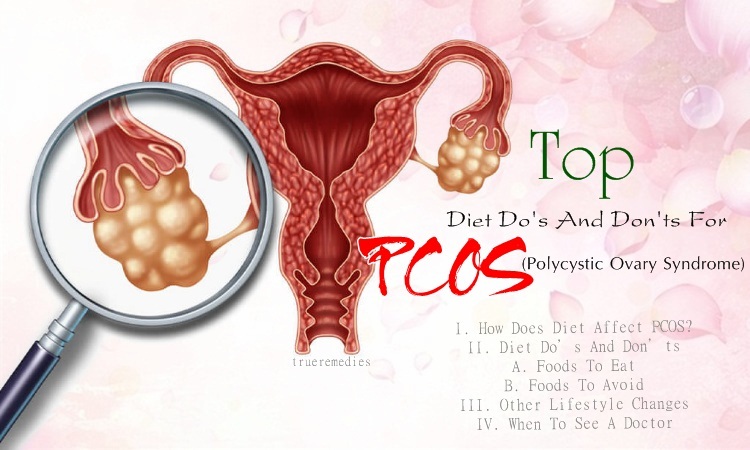Updated: 11/20/2019
CONTENTS
Due to the characteristics of industrial life today, we become hasty when doing everything; e.g., eating fast, eating while working, eating foodless food etc. that has made inflammation in the stomach more popular than ever. Inflammation in the stomach is also known as gastritis. The common symptom of the disease is a pain in the epigastrium. However, in many cases, the symptoms are only full stomach, indigestion, heartburn, and belching; so, many people do not pay attention to it. They do not go to the doctor to do tests on the condition of their stomachs, and therefore, they do not take appropriate measures. If chronic gastritis is not treated efficiently, it will increase the risk of stomach cancer, especially when caused due to Helicobacter pylori. As you know, the proper treatment of diseases, including the treatment of inflammation in the stomach, should be done as soon as possible. This helps to shorten the healing time and also to avoid negative consequences for patients. However, how to treat this disease, especially when the condition is still mild? If this is your concern, then this article is for you. Home remedies for inflammation in the stomach that are very effective and safe for you to follow. However, before that, you had better understand some basic information about this problem. That way, you can deal with it the right way. Do not ignore anything because they are all very useful.
- 18 Effective foods to reduce inflammation in the body
- 16 Safe home remedies for a stomach ulcer pain relief
- 26 Home remedies for gas pain and bloating in children & adults
What Is Inflammation In Stomach?
Inflammation in the stomach is also known as gastritis. Gastritis is a condition that occurs when the stomach is inflamed or swollen[1] [2]. It is a relatively clear pathology. However, the term is often abused to explain some symptoms of the digestive system, such as heartburn and indigestion. Actually, gastritis may not cause clinical symptoms at all. According to medical experts, gastritis is a consequence of irritation of the mucosa by exogenous or endogenous factors such as toxicity, infection, and immune disorders. The mucosa is the innermost layer of the stomach that is composed of three layers, including the epithelial layer, the cushion, and the mantle. Depending on the study in the world, the rate of acute inflammation in the stomach in the population is eight per 1000 people[3].
The disease is not dangerous and may quickly turn better after treatment. However, in some cases, gastritis may lead to stomach ulcers or increase the risk of cancer. Inflammation in the stomach may occur suddenly (acute gastritis) or prolonged (chronic gastritis). Each group has its own characteristics. In fact, through daily medical examination and treatment, physicians encounter mainly chronic gastritis. This condition increases with age and accounts for 40-70% of gastric diseases.
- Acute Gastritis
Acute gastritis is an acute inflammation of the gastric mucosa, which is usually temporary. It may be accompanied by more severe mucosal bleeding or even ulcerative gastric mucositis. If treated, most patients with acute gastritis recover very quickly. If left untreated, patients may have a high blood loss or the disease may progress to chronic gastritis. Prophylaxis remains the best. Avoid risk factors, such as many nonsteroidal anti-inflammatory drugs (NSAIDs), alcohol, smoking, cocaine, and stress.
- Chronic Gastritis
Chronic gastritis is first described in 1728 based on the results of an autopsy by G.E. Stahl. Thanks to endoscopy and mucosal biopsy, the understanding of gastric inflammation is becoming more abundant. Chronic gastritis is considered as inflammation of the gastric mucosa, which occurs slowly and lasts for a long time. The lesions of the gastric mucosa are usually located in the anal area.
TrueRemedies Partner Solutions

Need a Help from the Leading Expert Online, Available 24/7?
They’re all here and ready to answer your questions online or by phone. Keep asking questions until you get the answer you need.
Chronic gastritis is found in two subjects. In malignant anemia patients, there is an autoimmune cause. Severe gastrointestinal trauma, such as gastric atrophy accompanied by complete or incomplete loss of wall cells, cause gastric acid deficiency or absence of acid. There are three types of autoantibodies against the wall cells. In the elderly with no malignant anemia, there are also 60% of cases with autoantibodies against the wall cells, but no antibodies against the intrinsic factor. Very few cases have autoantibodies against gastrin secretory cells. Patients in this group often have a gastric ulcer, which may be due to dyspnea of the pyloric sphincter and reflux of bile acid.
What Are Common Causes Of Inflammation In Stomach?
There are many causes of inflammation in the stomach. Causes of acute gastritis and chronic gastritis are different. However, to make it easy to understand, we will present the main causes of this disease below:
- Not eating at the right time
- Eating too fast
- Frequently eating too hot or too cold foods
- Frequently eating unhealthy foods: The effect of a particular bacterium Helicobacter pylori is a very common cause.
- Drinking a lot of alcohol causes irritation and erosive mucus in the stomach, causing inflammation, ulceration, and bleeding.
- Excessive smoking causes blood vessel constriction, which reduces blood supply to the lining of the stomach.
- Old age
- Some diseases such as kidney failure or infections such as measles, diphtheria, typhoid, etc.
- Uncomfortable spirit, prolonged stress, or frequently staying up late
- Frequent use of antibiotics and painkillers: In some of these drugs contain ingredients that damage the lining of the stomach. If you take the drug while hungry stomach, this is even more dangerous to the stomach.
- Pylori infection
- Malignant anemia (also known as giant cell anemia or vitamin B12 deficiency, an autoimmune disease)
- Cancer treatments such as radiation therapy and chemotherapy: These can lead to inflammation, ulceration, gastric bleeding, and other complications.
What Are Common Symptoms Of Inflammation In Stomach?
Symptoms of inflammation in the stomach vary among people, and many people have no symptoms. But the most common symptoms are:
- Nausea and vomiting
- Heartburn
- Indigestion
- Recurrent upset stomach
- Stomach pain
- Abdominal bloating
- Burning or gnawing sensation in your stomach at night or between meals
- Loss of appetite
- Hiccups
- Bloating
- Vomiting blood
- Black, tarry stools
Who Is At High Risk Of This Problem?
Gastritis is very common, but it is more common in people who use painkillers or alcohol abuse. You can control gastritis by minimizing risk factors. See your doctor for more information.
When To See A Doctor?
You should contact your doctor immediately if the symptoms do not improve. You should also talk to your doctor if you feel uncomfortable after taking medication, especially aspirin or other painkillers. In addition, if you vomit blood or blood in the stool, you should also see a doctor to find the cause.
The above is the basic information on inflammation in the stomach. You’ve probably got the most out of the disease. As we have stressed above, this disease needs to be treated as soon as possible. It is time to find out what the best effective home remedies for inflammation in the stomach are. While we are listing the scientific evidence, the recipes we've focused on are traditional home remedies so proceed with caution depending on your condition. Always consult your doctor to know if a remedy is working for you.
Top 22 Effective Home Remedies For Inflammation In Stomach
1. Honey
Honey is a natural antibacterial for health that works better than other antibiotics. According to a review from 2016, the antimicrobial effects of Manuka honey may help to fight against H. pylori. It may be useful in healing stomach ulcers[4]. In addition, honey also contains prefix A, vitamins B1, B2, B6, E, and folic acid, all of which are very good for the stomach. Therefore, honey is listed as one of the most effective home remedies for inflammation in the stomach.
Mix 2 tablespoons of honey (preferably) into a glass of warm water and then drink it. You can drink honey before going to sleep and in the morning when you wake up. Honey not only heals wounds on the lining of the stomach, but it also helps you to have a sound sleep. This is great for people who suffer from insomnia.
Or, you can mix honey and garlic. Both garlic and honey contains an antibiotic that may kill bacteria and inhibit the growth of bacteria present in the throat.
Researchers have also found that garlic contains allicin[5]. It works to enhance the antibacterial properties of the immune system in the body[6] [7], helping the digestive system against the pathogens. About half of the world's population has Helicobacter pylori, the bacteria strain to cause gastritis, in the digestive tract[8]. When your condition is caused by Helicobacter pylori, using garlic extract may help to kill these bacteria. One study notes that garlic extract is an excellent way to kill Helicobacter pylori bacteria[9]. Garlic, when combined with honey, will form a compound that enhances the antibacterial properties, helping the body fight off bacteria that cause gastritis.
Directions:
- Prepare garlic and pure honey
- Peel garlic cloves
- Crush 15 g of garlic cloves and soak it in 100 ml honey
After 3 weeks, the mixture is ready to be used. Let’s take about 2 tablespoons of the mixture in the morning and in the afternoon. Also, you can eat some garlic cloves in your meals. This also helps you to relieve abdominal pain quickly.
2. Radish And Fresh Lotus Seeds
Among home remedies for inflammation in the stomach, the combination of radish and fresh lotus seeds is one of the most effective. Radish and lotus seeds are rich in fiber[10], which helps relieve the pain caused by gastritis. Vitamin C in white radish may help eliminate wastes from the body[11]. This helps promote the digestive system to work better.
Directions:
- Prepare an equal amount of radish and fresh lotus seeds
- Soak radish and lotus with salt water for 5 minutes and then rinse them
- Crush these ingredients and filter the water
- Drink this water twice a day and each time about 50 g until you get the expected results.
3. Lemon
This remedy is among little-known home remedies for inflammation in the stomach. Lemon is very familiar to housewives. Although lemon is high in nitric acid, a little lemon juice may help reduce stomach pain. A review in 2012 shows that lemon juice has used in Western and Eastern practices to aid digestion and treat upper gastrointestinal problems, including acid reflux[12].
Directions:
- Prepare a lemon, a little sugar, and about 400ml of warm water (sugar is not good for inflammation) so replace with honey just od lemon) please make the changes
- Squeeze fresh lemon juice to warm water and add about 2 – 3 tablespoons sugar
- Stir the mixture and drink it
- You can drink 2-3 cups of lemon juice daily after meals.
Note:
- Make sure you use warm water to make lemon juice.
4. Turmeric
This is another must-try home treatment in this list of home remedies for inflammation in the stomach. Turmeric has great healing properties in wound healing and gut lining. It may fight inflammation, swelling due to the composition of curcumin in the essence of turmeric[13]. Turmeric is known as a treatment for inflammation in the stomach because of the anti-ulcer effect and healing of ulcers. It also helps the digestion process and treats the disease more safely. A few studies have been done to prove that turmeric is effective in treating inflammation in the stomach and that many of the anti-ulcer medications are also extracted from the turmeric.
Curcumin may help to kill helicobacter pylori, which aids in relieving the symptoms of peptic ulcers[14]. Curcumin may help to treat the inflammation caused by the ulcer effectors. Also, the biological properties of curcumin to fight these induced pathological issues is thanks to its antioxidant and anti-inflammatory activities. Therefore, this study confirmed curcumin as a natural anti-ulcer potent agent[15].
Method 1: Turmeric
Directions:
- Prepare 150 ml of cool boiled water, 3 teaspoons turmeric powder, and 1 teaspoon of honey.
- Mix the mixture and stir it well.
- Drink 3 times a day after meals.
Method 2: Turmeric And Honey
In the treatment of inflammation in the stomach, people also use honey to increase the healing process due to its good antibacterial and wound-healing properties. Honey contains a lot of good antimicrobial agents, which helps to stimulate metabolism, improve digestion, increase immunity, and prevent gastric irritation.
Directions:
- Prepare 50 grams of fresh turmeric and 3 tablespoons of honey.
- For fresh turmeric, you have to wash, shave the shells, grind clearly, and squeeze the juice.
- Mix turmeric juice with 3 teaspoons of pure honey, mix well, and drink every day.
- Have it twice a day before meals.
You can also use turmeric powder instead of the fresh turmeric juice.
- For turmeric powder, mix 2 teaspoons of turmeric powder with 1-2 teaspoons of honey and drink it.
Keep practicing for about a month to see the effect. You should go to the hospital to check the health status before and after using this remedy to determine the effectiveness of the treatment to decide whether you should continue to use this method or not.
Method 3: Turmeric, Honey, And Wormwood
Directions:
- Prepare 200 grams of fresh turmeric, 30 ml of honey, and 500 grams of fresh wormwood
- Wash the fresh turmeric and wormwood. Slice them and put them into a blender with 0.5 liters of pure water.
- Blend them and then filter through the fabric to get the juice. Leave the residual.
- Mix the juice and honey in a saucepan and stir and simmer until it is thick.
- Place the mixture into a refrigerator and then drink it.
Note that:
- Patients who use this remedy need to abstain from animal fats and stimulants, such as alcohol, beer, cigarettes, hot and spicy foods, etc.
- Pregnant women are careful about this treatment because it is not good for the fetus and may cause uterine stimulation.
5. Ginger
The next treatment in this list of home remedies for inflammation in the stomach is ginger. Ginger contains substances, such as Tecpen and Oleoresins that have good antiseptic, anti-inflammatory, analgesic properties and are considered as natural antibiotics without any side effects[16].
In addition, scientists have discovered that the bitterness of fresh ginger and its compounds such as 6-Zingiberol, Methadone (Amidon), Ginger oil, etc., all of which help to inhibit the composition of Prostaglandin. Ginger is effective against nausea and gastrointestinal disorders[17].
Method 1: Ginger Tea
Directions:
- Prepare 1 cup of water, 2 teaspoons of honey, ¾ teaspoons of ginger powder, 1 green tea bags, and ¾ cup of almond milk. If you do not have fresh ginger, you can use ginger powder instead.
- Boil water and add the honey and ginger powder to it.
- Reduce the fire and let it boil for about 10 minutes.
- Turn off the stove and dip tea bags into hot ginger juice. Soak ginger tea for about 5-7 minutes.
- Finally, pour the tea into a cup, add milk to it and stir and enjoy it.
- You can keep ginger tea in the refrigerator and reheat when you drink.
Method 2: Ginger And Sugar
Directions:
- Prepare 2 cups of water, 2 tablespoons of coconut sugar, and 2 tablespoons of fresh ginger
- Pour water into a small pan and boil it.
- Pour freshly ground ginger into a glass, add boiling water to it, and soak for 10 minutes.
- Then add sugar and stir it well
Method 3: Ginger And Vinegar
Directions:
- You wash fresh ginger.
- Cut ginger into thin slices, place them in a glass jar, pour the rice vinegar into it, and dip for about 7 days.
- Ginger, soaked into the vinegar should be stored in a cool, dry place or can be placed in the refrigerator.
- Each time you have stomach pain, you should eat 2-4 slices of ginger. Eating ginger is also beneficial for your digestion and preventing digestive disorders.
Method 4: Ginger, Lemon, And Honey
Directions:
- Prepare 1 fresh ginger, half a lemon, and 1 teaspoon of honey.
- Grind the fresh ginger and take the ginger juice.
- Mix fresh ginger juice and fresh lemon juice in a glass of water and then add 1 tablespoon honey to it
- Stir it and then drink it.
Note that:
- You should not use ginger with aspirin and coumarin (must be 4 hours away).
- People with a blood cough, hemorrhage, nosebleeds, and bleeding hemorrhoids should not use ginger.
- People with sunburn, sweating, and high fever should not use ginger as the treatment for inflammation in the stomach.
- People with diabetes, heart disease, pregnant women should not take much ginger and use it in a prolonged time.
6. Dill Seeds
This is also one of the little-known home remedies for inflammation in the stomach thanks to its anti-inflammatory properties[18]. Dill seeds contain ingredients that work to treat abdominal pain and prevent gastritis.
Directions:
- Add one teaspoonful of dill seeds to boiling water and soak them for a few minutes
- Filter the water
- Add a teaspoon of lime juice to the water and drink it before eating
7. Aloe Vera
Aloe vera contains more than 300 compounds, including a lot of amino acids, minerals, and vitamins that are essential for the body. The vitamins contained in aloe vera such as A, B2, B12, E, M, etc. function as hematopoietic, support metabolism, antioxidant. In addition, this plant has the effect of natural anti-inflammatory antibiotics[19].
The active ingredients in aloe vera such as cinnamic ester, aloe amodine, anthracene, aloetic acid, etc. have functioned as antifungal, exfoliating, antiseptic, laxative, and gastric-secreting agents. Therefore, aloe vera is effective in treating wrinkles and ulcers in the skin or in the stomach[20]. It also inhibits the enzyme pepsin and hydrochloric acid to prevent peptic ulcer disease.
Method 1: Aloe Vera
Directions:
- Prepare 200 grams of aloe vera gel and 500ml of water
- Put the aloe vera gel in water and mix them well.
- You can drink it 2 to 3 times a day.
Method 2: Aloe Vera And Honey
Directions:
- Prepare 5aloe leaves and honey 500 ml.
- Wash the fresh aloe vera leaves, slice, and then put them into a blender.
- Add 500ml of pure honey and the blended aloe vera to a glass jar.
- Store the mixture in the refrigerator and use it for 1 week.
- Drink 2 tablespoons of the mixture for 2-3 times a day.
Method 3: Aloe Vera And Turmeric Powder
Directions:
- Prepare 20 grams of aloe vera, 12 grams of turmeric, and 6 grams of licorice.
- Peel the aloe vera, rinse, and cut it into small pieces.
- Mix aloe vera, turmeric, and licorice. Then, boil it with 500 ml of water.
- Boil the mixture and extract the juice.
- Use four to five teaspoon of the juice three times a day.
8. Green Banana
Bananas provide a variety of chemicals that may stimulate the growth of protective mucous membranes in the stomach and intestines, preventing recurrent inflammation. As it is rich in fiber[21], green bananas support the efficient functioning of the digestive tract and intestinal activity. Adding green bananas in your regular diet will definitely help you to have a good digestive system. This remedy is considered one of the best natural home remedies for inflammation in the stomach.
Method 1: Only Green Banana
Directions:
- Prepare 2 green bananas and 400 ml of water.
- Rinse bananas, slice them, and dry them for 2 days.
- Boil the banana slices in 400 ml of water for 10 minutes.
- Let the mixture cool and drink 2-3 times a day after eating.
Method 2: Green Banana And Lettuce
Directions:
- Prepare 2 green bananas and 100 grams of lettuce.
- Wash the green bananas and chop them into small pieces.
- Mix it with lettuce and then grind them
- Filter for the juice.
- Use the mixture before eating to give the best effect
Method 3: Green Banana And Honey
- Prepare a green banana and 3 tablespoons of honey.
- You wash the green banana, remove the outer shell, and soak it in water.
- Slice bananas into thin pieces, dry them, and grind them into powder.
- Mix the banana powder with honey and make it into small balls
- Or, you can mix banana powder, honey, and water and drink it every day.
9. Apple Cider Vinegar
Apple cider vinegar is a major component of acetic acid[22]. When using apple cider vinegar as a treatment of inflammation in the stomach, the stomach will reduce the acid secretion of HCl. This improves gastric acidity and treats indigestion. Apple cider vinegar has a high antimicrobial properties[23], and it also absorbs vitamins and minerals, which may help with indigestion and constipation[24].
At the same time, apple cider vinegar also reduces inflammation in the stomach effectively. It also has good antiseptic and cleansing properties. It helps the stomach to absorb nutrients and prevent indigestion, while also providing relief from stomach pain.
Method 1: Apple Cider Vinegar
Directions:
- Prepare 1-2 teaspoons of apple cider vinegar and 1 cup of warm water.
- Mix the mixture and stir it well.
- Use the mixture to rinse your mouth 3 times a day.
Method 2: Apple Cider Vinegar And Honey
Directions:
- Prepare 2 tablespoons of apple cider vinegar, 1/2 teaspoon honey, and 100ml of water.
- Boil water and pour the apple cider vinegar and honey.
- Stir them well.
- Use the mixture for drinking before eating and in the morning.
- You should use this method 3-4 times a week.
10. Mint
It is the last one in this of home remedies for inflammation in the stomach. Dry mint leaves have many essential oils and antioxidants[25]. Mint leaves stimulate digestion and help to calm stomach inflammation. The aroma of mint leaves activates salivary glands and enzymatic secretions that stimulate digestion, thereby improving digestion. Because of the many anti-inflammatory ingredients as rosmarinic acid[26], you can use mint leaves as a treatment for inflammation in the stomach.
Method 1: Mint
Directions:
- Prepare 200 grams of mint leaves and 300 ml of water.
- Rinse the mint leaves and then put them into a grinder.
- Grind mint leaves and mix them with 300 ml of water.
- Stir them well and use it when hungry.
Method 2: Mint Oil
You need to mix 3-4 drops of mint oil with 200-300 ml water and then drink it in the morning before breakfast.
Method 3: Mint Tea
Directions:
- Prepare 300 grams of mint leaves, 3 slices of ginger, and 500 ml of water.
- Rinse mint leaves and then grind them.
- Boil the ginger with water, add the mint leaves to it, and leave for 10 minutes.
- Use the mixture of mint leaves for drinking 2-3 times a day.
The above-mentioned home remedies for inflammation in the stomach are claimed to be able to reduce the symptoms of heavy or prolonged periods. Choose some of them and alternate them in your treating to see how effective they are. If you have any contributing ideas about our article on Home Remedies Category, do not hesitate to drop your words below this post. We will answer as soon as we could.












